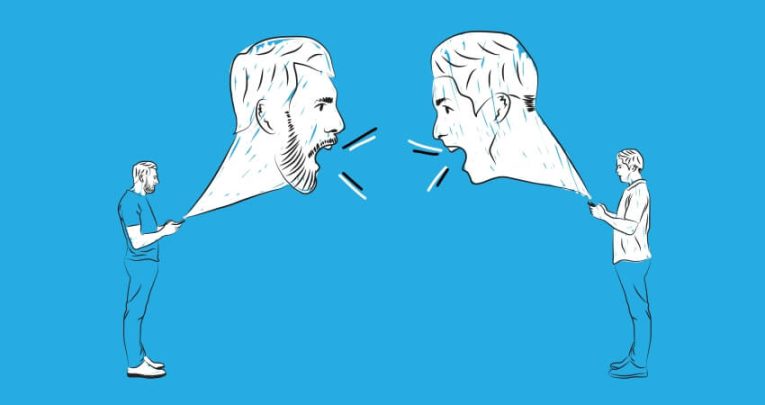Education influencers – Are social media spats the price we pay for more progressive classrooms?

We should be glad that classrooms are less brutal than they used to be, but also wary of the pendulum swinging too far the other way, writes John Lawson…

- by John Lawson

When COVID curtailed school visits, I embraced Twitter and built a network of teaching friends. Exchanging tweets with fellow teachers proved to be an enriching experience, so long as one steered clear of pugilistic spats the platform is notorious for.
I wasn’t teaching in schools throughout the pandemic, and thus came across a few discussions of problems I hadn’t faced personally – yet some teaching practices don’t change, and it seemed to me that the disruptions of COVID made it more important than ever to identify what those might be.
Sadly, though, while sharing my thoughts regarding some treasured teaching truisms, I found myself periodically admonished by a high profile Twitter user who I shall henceforth refer to as ‘Dr. No’ – someone who I can only assume teaches classes exclusively populated with delightful children.
According to Dr. No, if children are regularly late for class, teachers should celebrate their arrival rather than admonish them. Grades, they insist, are merely the degrading tools of elitists. If students cheat on tests, it’s because schools falsely equate grades with ability. Ergo, all tests and grade books should be abolished.
Irreparable harm
Homework is another no-no, since it steals too much precious leisure time. Children mustn’t be corrected, because that might irreparably harm their self-esteem. Juvenile curses aimed at teachers? Those are simply primal cries for unconditional love. You see, the kids in our classrooms genuinely want to learn, though will occasionally – and entirely understandably – rage against its debasement by totalitarian propagandists.
Oh, and uniforms engender conformism, And asking permission to use the bathroom is humiliating and controlling.
Really?
Let’s imagine what the wholesale abolition of homework, tests, grades, codes of conduct, and bathroom passes might look like. Will our students continue to give their absolute best every day? Can we expect all children to never be naughty or indolent ever again? How can children develop character if we never challenge them?
Okay, boomer
When I put such questions to Dr. No, they wouldn’t respond personally – though their ultra-progressive acolytes could always be relied upon to rabidly attack me for questioning Dr. No’s omniscience. ‘Dr No has a YouTube channel! Have you?’
I don’t.
Before encountering ‘the Doc’ and their 80k followers, I rarely had cause to question my own deeply held liberal-ish credentials. Yet now I’m frequently left agog at how the well-documented history of education in this country goes blithely ignored.
I remember all too well the schoolteachers who would routinely beat, shame and humiliate us baby boomers. I can still recall how Mr. Wellard once twisted my ear, while guffawing to the rest of the class about how he’d written my recommendation letter for “UAS – ‘The University of Advanced Stupidity!” But, please – do tell me more about how humiliating 21st century teaching practices are.
Apologists for excellence
The college professors who influenced me the most had a genuine love for teaching and cared about my wellbeing.
Unlike Dr. No and co, however, they didn’t routinely demonise the system or their colleagues, nor did they idealise their students. Instead, they accepted us for who we were, while challenging us to improve ourselves. I was never reduced to my IQ, postcode, or past misadventures. My teachers were apologists for excellence who unapologetically demanded my best.
As such, red ink would be liberally scrawled across my grammatical and intellectual shortcomings. I was once given an ‘F’ for misreading a question. Guess who made sure that wouldn’t happen again in his uni finals…?
Teachers need assessments which can establish whether what we think we are teaching is what our students are indeed learning. Are their academic achievements comparable to local, national, or global standards? Good educators don’t pretend that success and happiness are easily found, because they’re not. They mix hope with realism.
Students need to think for themselves, identify and nurture their unique gifts and talents, appreciate that respect is a two-way street and graft at their chosen craft. Ultimately, I want my students to accept that the teachers who prepare them for life’s inevitable challenges – rather than those who would prefer to wish such challenges away – really aren’t the enemy.
John Lawson (@johninpompano) is a former secondary teacher, now serving as a foundation governor and running a tutoring service, and author of the book The Successful (Less Stressful) Student (Outskirts Press, £11.95); for more information, visit prep4successnow.wordpress.com











